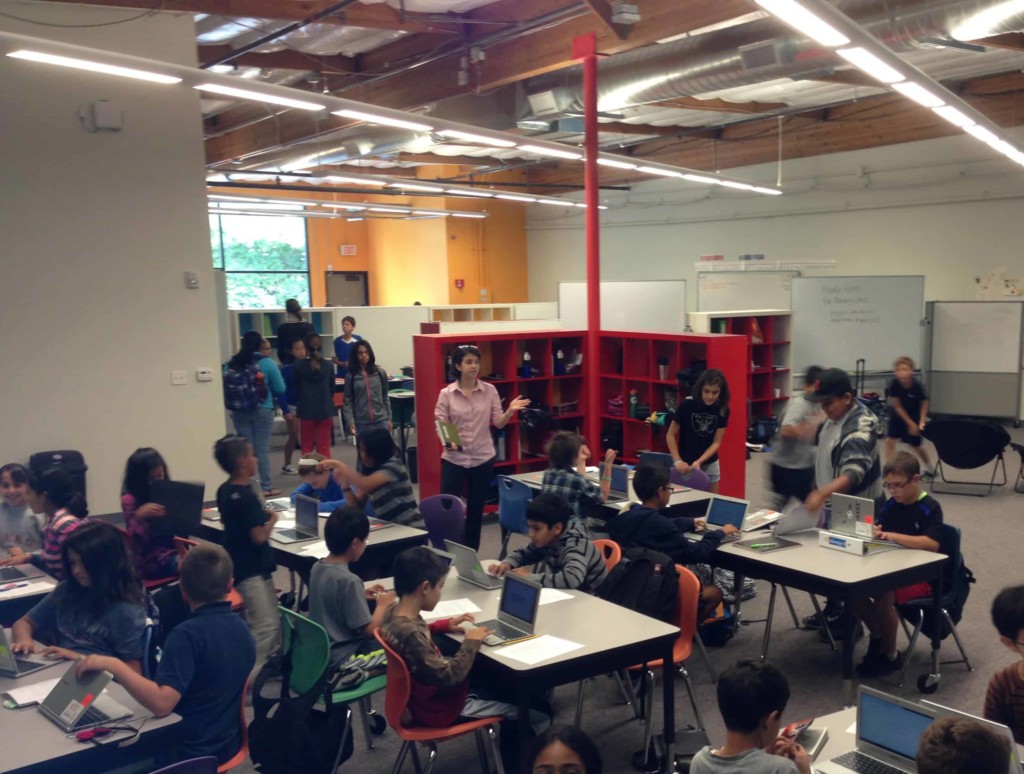Next-Gen Models Planned for Washington State

The first Washington State Charter School Conference (something I’ve been waiting to say for two decades) focused on quality schools, personalized learning, and the challenges of meeting the needs of diverse learners.
Simmons Lettre, Charter Board Partners (where I’m a director) described the critical role that good boards play in creating and sustaining good schools. CBP is working with WA Charters to support development of great boards for the newly authorized schools.
Diane Tavenner, Jon Deane, and Jen Wickens described the innovative Summit Public Schools starting with 4 elements of readiness: outcome quadrants: cognitive skills, content knowledge, habits of success, and expeditions. Summit personalizes learning with a combination of skill-building playlists and engaging projects in cycles of continuous learning. (See recent feature; picture is Summit Denali in Sunnyvale CA.)
Michele Hansen, President of ActivateInstruction.org (funded by Girard Education Foundation) described how Summit teachers curate and playlists. Other leading charters, including High Tech High, are contributing content to the platform. The platform, which has received 100k visits since August, was developed with Illuminate and Summit. Michele outlined five keys to innovative partnerships: aligned goals, communications, expertise, ability to iterate, and clear outcomes. (See 6 Tips for Building Grantmaking Partnerships.) Sue Shalvey, Aspire Public Schools, moderated a session on anytime, anywhere any service featuring:
- Brett Gallagher, Presence Learning, online speech therapy and related services;
- Amy Alamar, Director of School Partnerships for Activate Instruction, the open content platform that powers Summit Public Schools.
- Anna Utgoff, Schoolzilla, the data platform developed by Aspire; and
- Arthi Krishnaswami, RyeCatcher, an app that connecting special needs students to services.
Greg Richmond, National Association of Charter School Authorizers, spoke about The State of Charter School Authorizing, a new report. Highlights include:
- There are now 1045 active authorizers in the nation up from 718 in 2008;
- Almost half of authorizers (571) oversee only one school while 10% oversee 72% of all schools;
- The adoption of NACSA’s 12 Essential Practices for quality authorizing continues to be strong but is uneven;
- Large authorizers (with portfolios of 10 or more schools) adopt Essential Practices with greater frequency than smaller authorizers;
Washington will avoid the uneven practices experience in other states because the state is currently limited to 40 charters (over 5 years) and the Charter School Commission is the only authorizer. Commission Chair Steve Sundquist gets high marks from observers and advocates.
Terry Ryan, Idaho Charter School Network, was exploring collaboration opportunities on behalf of the 48 schools he represents.
WA Charters is supported by the Bill & Melinda Gates Foundation, the Walton Foundation, Paul G. Allen Family Foundation. Aspire founder and Gates Foundation officer Don Shalvey keynoted the opening dinner.
Only one charter will open in the fall. More than a half a dozen will open in 2015. It was great to see so much enthusiasm for new schools for high poverty students from both easter and western Washington. It’s very likely that they will be innovative and effective models for underserved communities.







0 Comments
Leave a Comment
Your email address will not be published. All fields are required.